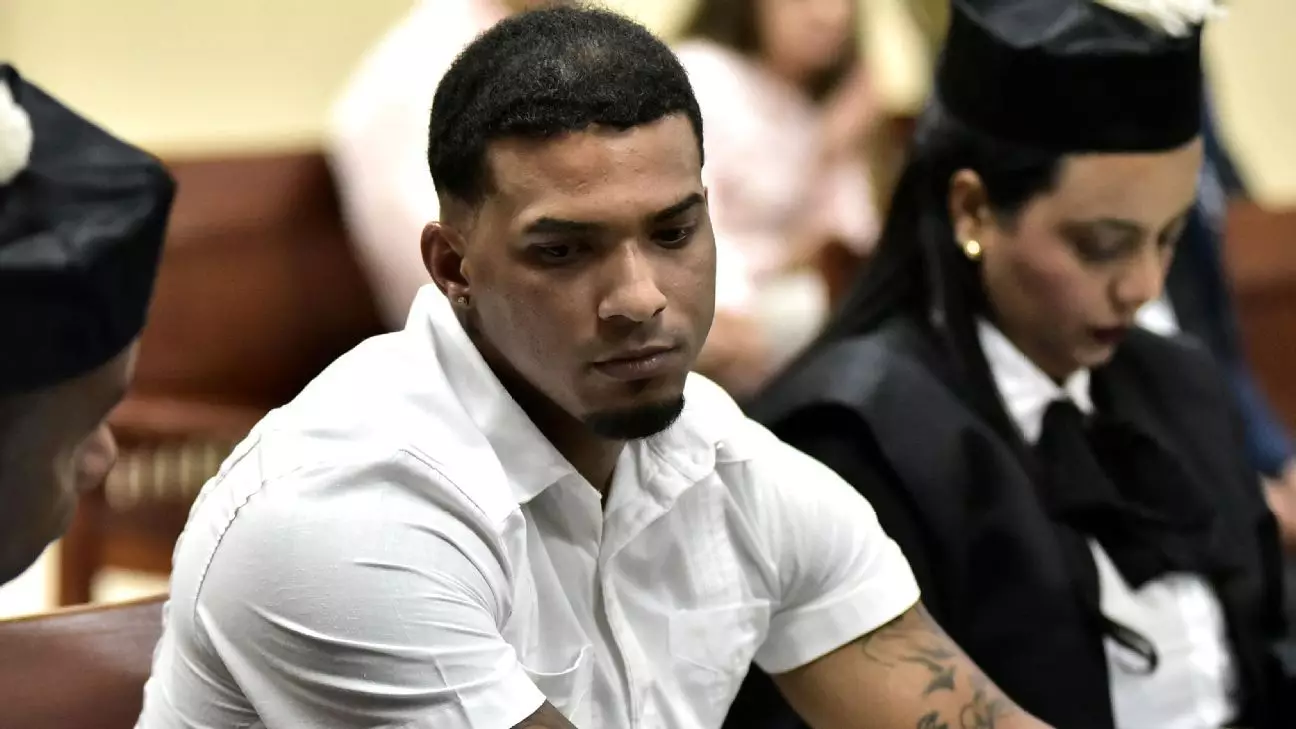In a shocking series of events, prosecutors in the Dominican Republic have taken a vigorous stance against former Tampa Bay Rays player Wander Franco, requesting a five-year prison sentence for his alleged sexual abuse of a minor. This distressing case highlights the darker facets of fame and wealth, and how these elements can sometimes lead to catastrophic decisions. Franco, a promising talent in Major League Baseball, now faces not only a potential prison sentence but also the irrevocable damage to his career and personal reputation.
The weight of the allegations is troubling. Prosecutors assert that evidence supports claims of a four-month illicit relationship between Franco and the underage girl, alongside financial transactions that reportedly involved large sums paid to the girl’s mother. The staggering discovery of $68,500 and $35,000 during raids at the mother’s residence amplifies the severity of the situation. Such financial exchanges raise critical ethical questions about consent and exploitation, particularly when considering the significant power imbalance between a professional athlete and a minor.
Systematic Failures in Seeking Justice
The prosecutor’s statement emphasizes the need for accountability. “We are requesting a five-year prison sentence for the proven crime of sexual abuse against a minor,” proclaimed prosecutor José Martínez. However, juxtaposed against the backdrop of the legal process, the complexities of the case elicit concerns over systemic failures that often hinder victims, especially minors, from achieving justice. The proposed ten-year sentence for the minor’s mother for allegedly sexually trafficking her daughter further underscores a societal failure to protect the vulnerable.
Defense arguments equally merit scrutiny. Franco’s legal team is questioning the motivations behind the prosecution’s claims, suggesting ambiguities that could shift the focus from the accused to the victim’s circumstances. This defense strategy serves as a harsh reminder of how the legal system grapples with dual narratives of guilt and innocence, where the voices of vulnerable populations can often be drowned out in the fray of legal debates.
The Broader Implications of Celebrity Culture
Franco’s fall from grace also raises larger questions about celebrity culture and the responsibilities that come with it. Emerging from a promising career—having signed an 11-year, $182 million contract just a year prior—this incident not only reflects on his individual choices but also calls attention to the societal structures that enable similar scenarios. The allure of wealth and fame can sometimes foster environments where ethical lines are blurred, leading individuals to engage in perilous misconduct without proper accountability.
This case highlights a crucial division in public perception and the often adversarial position victims find themselves in when faced with high-profile defendants. It serves as an urgent reminder for society to create more effective safeguards and protocols that prioritize children’s safety and well-being, ensuring that justice is not just an option but a reality. As the case continues to unfold, one can only hope that it leads to a meaningful dialogue about accountability, power dynamics, and the protection of those most vulnerable in our communities.


Leave a Reply